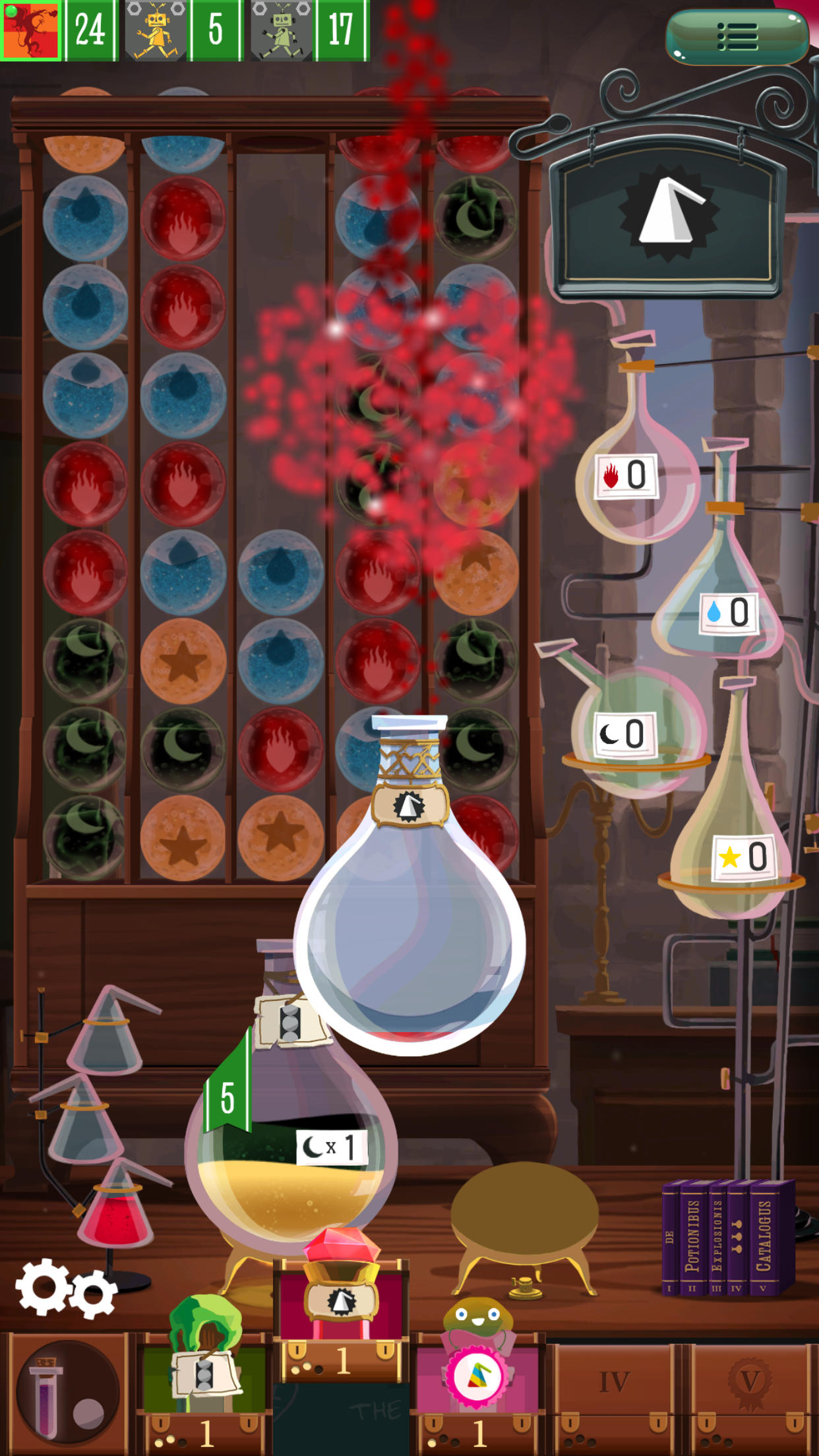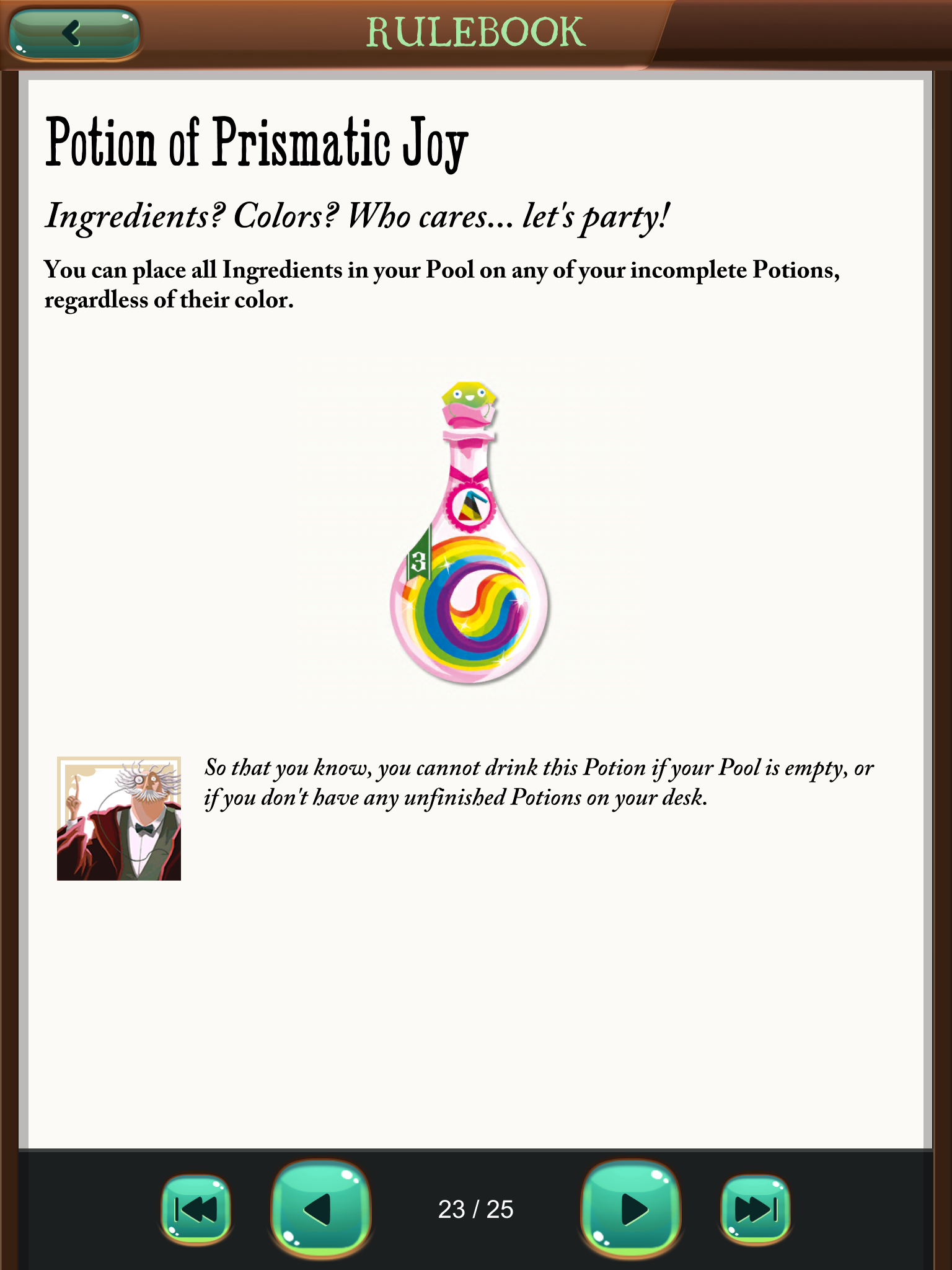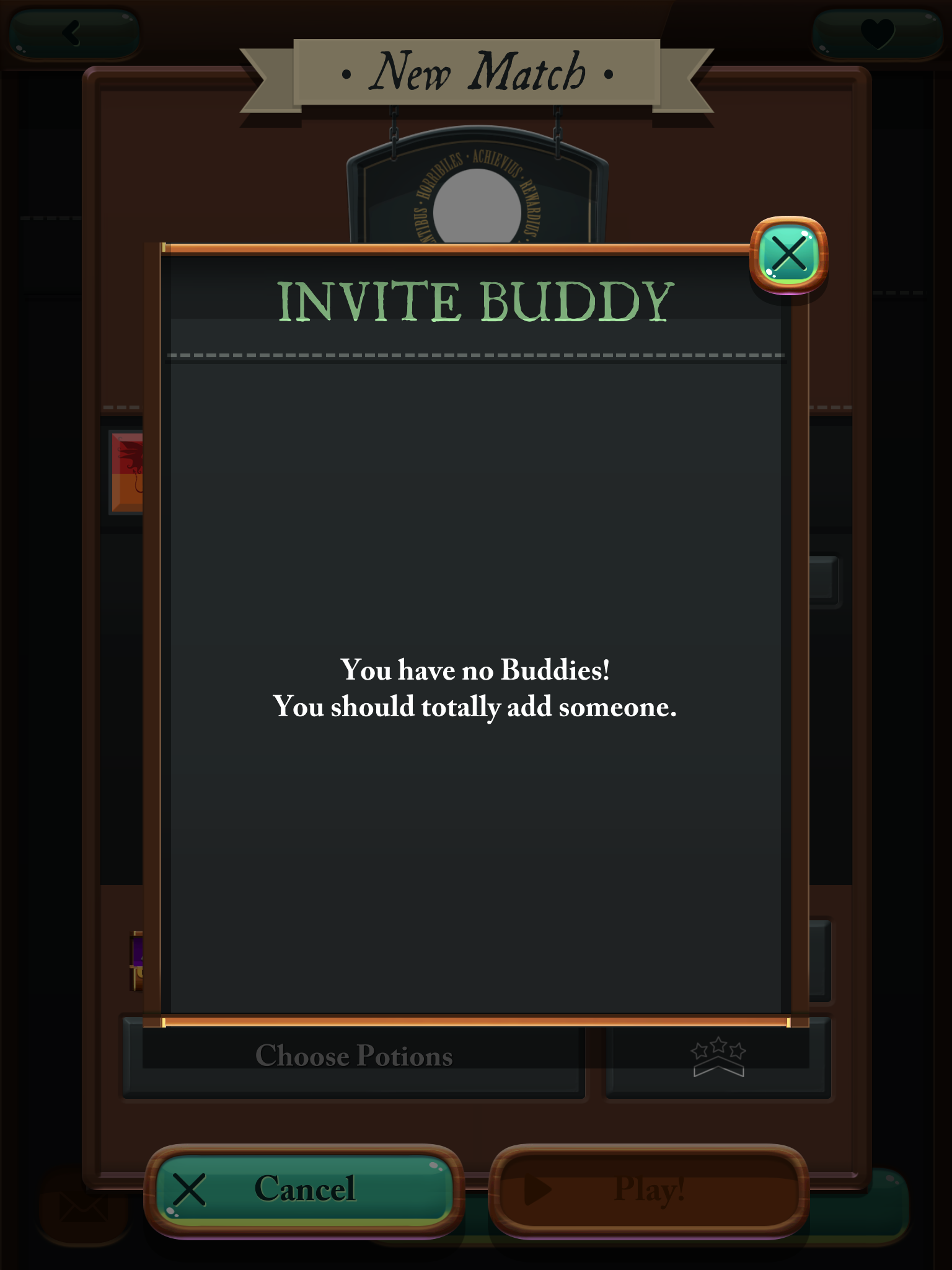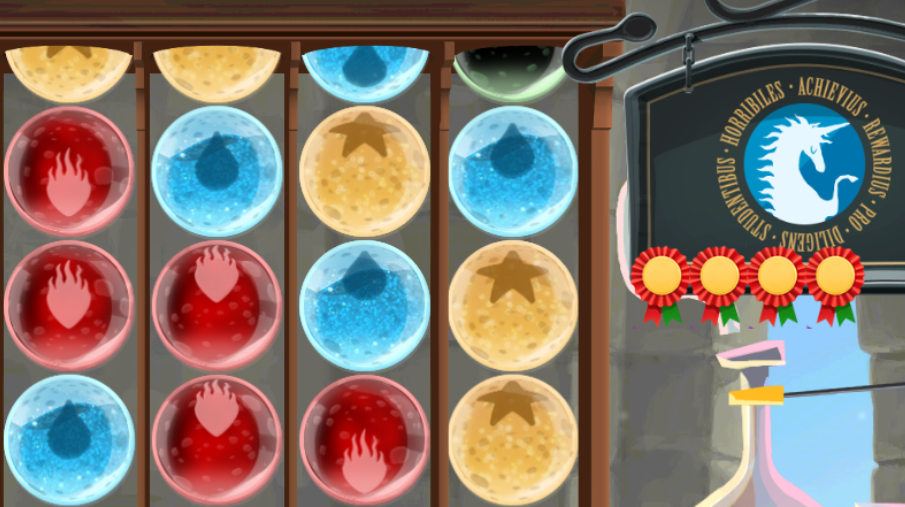The retreat from Game Center has opened a hole in the iOS board game development world. With Apple’s commitment to asynchronous multiplayer looking uncertain and the value of a unified multiplayer solution high, publishers of popular board games are likely to seek partnerships with developers who have proven multiplayer systems. That’s going to be very interesting to observe over the next few years. Potion Explosion is a Horrible Games/Cool Mini Or Not product in the tabletop world, but Asmodee Digital and Studio Clangore have brought it to mobile devices, which means you can use an existing account for any Days of Wonder or Asmodee title. That’s a pretty impressive catalog–just in my own iTunes library, I have Ticket To Ride, Small World (2, he added, rolling his eyes), the recently improved Colt Express, Pandemic, and Splendor.
What’s notable about these games is how effectively they fit into a mutually reinforcing role–they’re all strong family games which still appeal to many serious gamers. Potion Explosion, like Colt Express, has a physical presence that makes such an impression that one might reasonably fear it wouldn’t translate well to digital. However, also like Colt Express, the iOS version displays excellent design work which supplements the vibrant art of the original with lovely animations and a reasonably clear interface. Even the simple swirling of brightly-colored liquids in potion flasks is surprisingly satisfying.

Each turn, you take one potion ingredient from one of the five columns. This causes the ingredients above to fall down and fill the empty space–if, when they do, two previously non-adjacent ingredients of the same color come into contact, you also take all of the ingredients of that color in that column which then touch. This is called “exploding”, but I prefer to think of it as merely collecting, lest the game feel too much like a mystic custodial work simulation. Clever play can lead to chain reactions, but the fact that the columns don’t interact makes this task much less complicated than the apparent similarities to the match-3 genre would suggest.
That means that ingredient selection is important, but much of the strategy of the game takes place in the process of choosing which potion recipes to work toward. You can only attempt two at a time; each completed potion gives you victory points based on the number of ingredients required and the utility of the effect of the potion. Because who wants to play a game about brewing magic potions if you don’t get to drink them? Contrariwise, since the game is only about brewing potions, the effects are also all about brewing potions. So it does feel a little like Splendor, where the effect of collecting jewels is to let you collect other jewels faster, and then apparently spark an existential crisis in which one loses faith that human life has any meaning. But, hey, this is a jolly site about playing games, not spending your little discretionary time on meaningless pursuits which serve only to hasten your inevitable death!

The game ends when five badges (with their associated points) have been collected. They’re awarded for brewing three potions with the same effect or five with different effects, so the short-term task of selecting ingredients, drinking potions, and allocating them to recipes within a single turn interacts with, but is still fairly distinct from, the strategic level at which you plan which potions to brew in which order so as to earn as many of those badges as possible. This keeps the game from feeling excessively random and tactical.
The app has only two features I would wish to see improved. First, it prioritizes attractiveness over encouragement of skilled play in a few ways I wish could be changed in a setting. For example, the very pretty, but rather long, animations of potion effects and the placement of information about opponents behind a tap when there’s plenty of screen real estate to keep that information visible at all times. Secondly, though online multiplayer seems to work well, there don’t appear to be notifications available. There isn’t even an option in settings to allow Potion Explosion to use alerts/badges/banners, nor a signal in the app that it’s your turn in a game until you go to the multiplayer menu. I’m somewhat forgiving of that, given that so many games’ notifications work inconsistently and much of the blame seems to rest on Apple’s shoulders, but it’s certainly much harder to remember to finish out games you start without reminders.

Potion Explosion is easy to learn, has some depth, and is visually appealing. Since there’s no hidden information, it’s tremendous for local multiplayer play, especially with children or those who aren’t terribly hardcore. I think I prefer Splendor in this niche, myself, due to the challenges which incentivize solo play, but they’re otherwise quite comparable. If you’re looking for something to lighten your life or play with family, it’s a solid option to consider. Gamers looking for a serious challenge, great longevity, or convenient asynchronous multiplayer have better options.



I love this app!
The async works great (except, as noted, the notifications, but when I suggested it to them on Twitter, they “liked” it, which I take it to mean they made note of it).
The other thing I suggested to them is that they make it easy to go from one game to another if you’re involved in more than one. Right now, you have to exit and go back to the main menu screen. Annoying.
So far, the invitations seem to be working, though one of them didn’t show up.
This is the big problem with Asmodee’s digital games, so far. Invitations to your buddies sometimes go totally missing. Ticket to Ride has this problem, I’ve recently discovered that Small World does too.
That being said, it’s nice to be able to join games with friends without having to stay in the app like you do if you just open an async game for random opponents.
I’m enjoying too. I’ve played the physical version with kids before, but the selection of which potion to brew next is too complicated for them. Still, I also feel that you don’t have access to all the information you would want when selecting the next potion. I only recently figured out that the bottom list of potions can slide to reveal more than the 5 immediately visible categories.
I’m up for more games: JHTaube.